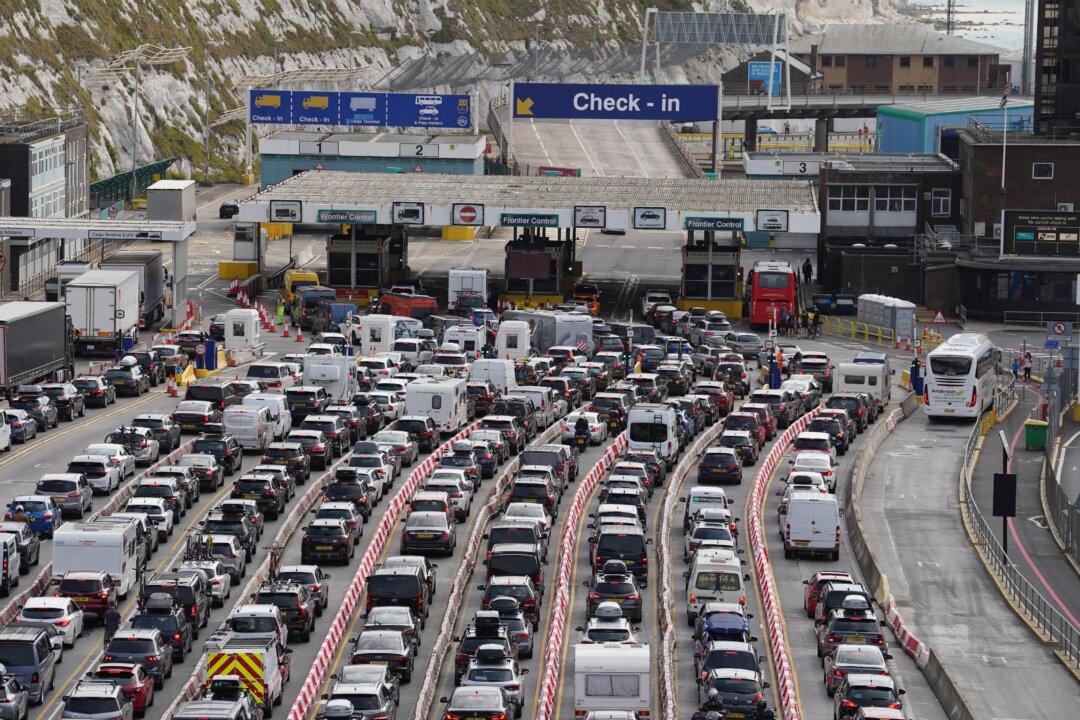Downing Street has insisted the travel chaos in the English Channel is not the result of Brexit, blaming instead the shortage of French border control staff for causing long queues and delays.
The disruptions started at the Port of Dover on July 22, when thousands of holidaymakers were stuck in traffic jams and 6-hour queues. The situation improved in Dover on July 24, but congestion at the Eurotunnel terminal left more people stranded.





